Jun 4th 2019
It will surprise no one to hear that the most common source of ocean pollution today is plastic. A cup, a stirrer, a straw, or a plastic bag may be handy for a minute or an hour, but then it lasts for another 1000 years. Single-use plastic items scatter by wind and water and end up in the ocean, taking a heavy toll on marine ecosystems.
In fact, scientists are estimating that
eight million metric tons of plastic trash ends up in the ocean every year. The water is a mess of litter, from the tops of the waves down to the ocean floor, not to mention plastic washing up on beaches all over the world. More than 1200 species of animals are harmed by consuming plastic or getting entangled in it. Plus, plastic releases toxins like BPA (bisphenol A) when it breaks down, which poisons ocean water.
How to Un-Plastic & Protect Our Oceans
So what can we do? Well, count it a success every time you keep a piece of plastic from getting to the ocean. And cutting down on use of plastic is critical. Try these 5 tips for cutting plastic and making ocean-friendly choices.
- BRING THAT BAG. A trillion plastic bags are used (and trashed) every year. Avoid plastic bags at every opportunity! Bring cloth totes along when you shop and carry a collapsible bag in your purse or pack so you’re always ready. Reusable bags make great gifts, too.
- INSIST ON REFILLABLE BOTTLES. Single-use plastic water bottles are a main offender when it comes to plastic use and litter. Fortunately there are a ton of cool, reusable bottles to choose from. Keep one at work, one at home, and one in your gym bag so you’re never without.
- YOUR LAST STRAW? 500 million straws are used DAILY, and they are too small to recycle… so they often end up as pollution. Find ways to go without. Maybe it takes pouring your fave seltzer into a glass for sipping. Ask servers to hold the straw when you order a beverage. If you really love straws, reusable metal or glass ones are great, or go with a paper straw.
- STIR IT UP, SUSTAINABLY: If you rely on plastic stirrers for hot beverages, there are other options. Carry a spoon with you for just this purpose. Use stir-sticks made of wood—or fettucine.
- CHOOSE OCEAN-FRIENDLY SEAFOOD: Why is this important? Because besides plastic, overfishing is another major culprit in damaging the health and vitality of our oceans. If you consume fish or fish oil, look for sustainably caught choices that are certified by a third party. New Chapter’s Wholemega Fish Oil is a good example—it’s made only with naturally pure Salmon sourced from Certified Responsible Alaska Fisheries.
Let us know your own tips. Here’s to helping to turn the tide on environmental problems, one last straw at a time.










